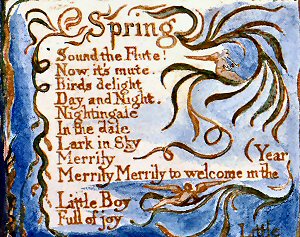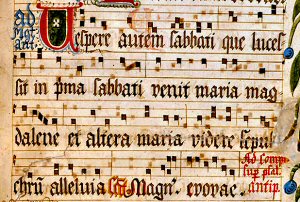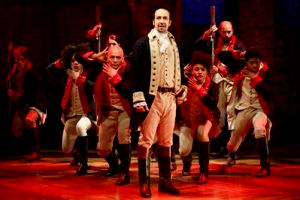6. Words for Music.
Finally, words written specifically to be set to music, whether that of a close collaborator or the lyricists
themselves—all Americans. We will first distinguish between songs in which the music dominates and those in
which the words do. The rest of the class will be devoted to comparisons between two sets of four
songs each, spanning the entire 20th century, with extensions to the end of the 19th and the beginning of the 21st.
The first group will be fictional songs dealing with longing or regret; the second quartet moves from fantasy to
real life, each reflecting some eventful moment in American history.
No special preparation is required for this class. The text handout
does include the full lyrics of all the songs we shall hear; you can look through them now, if you like, or come
back to them for reference after. They will still be available after the class, together with the usual slides,
script, and video links.
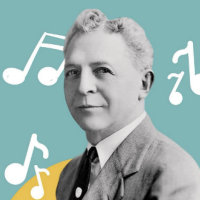 |
Charles K. Harris, 1867–1930. American songwriter.
Harris's 1892 song "After the Ball" became a runaway success. He ploughed his huge profits into setting up his own business as a Tin Pan Alley publisher, writing over 300 songs, but none achieving the same sentimental appeal.
|
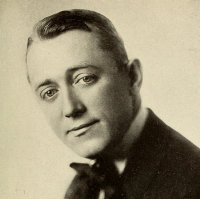 |
George M[ichael] Cohan, 1878–1942. American composer and perfomer.
Although his stage film and career lasted until his death, Cohan established himself before WW1 as "the Man Who Owned Broadway." Starting as a child performing with his parents and sister, he wrote hundreds of Tin Pan Alley songs and several musicals, starting with :Little Johnny Jones in 1904. He was also active as an impresario, producing the work of others. He is played by James Cagney in the 1942 biopic Yankee Doodle Dandy.
|
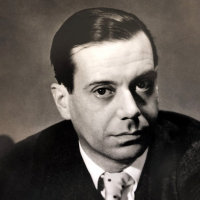 |
Cole Porter, 1891–1964. American songwriter.
Unlike many Broadway composers, Porter wrote not only the music but the lyrics for his songs, and these are notable for their wit, clever rhyming, and encyclopedic range of reference. In addition to numerous standalone songs that became standards, he also wrote musicals such as Anything Goes (1934), Kiss Me, Kate (1948), and Can-Can (1953).
|
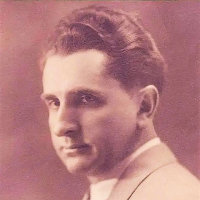 |
Jack Yellen, 1892–1991. Polish-American songwriter.
Born in Poland (as Jacek Selig Jelen), Yellen was brought to this country at the age of 5. He formed a publishing company with Milton Ager to pomote their songs, the best known of which is "Happy days are here agaib," written in 1929 but achieving fame when FDR adopted it as his campaign song in 1932.
|
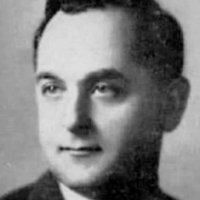 |
Milton Ager, 1893–1979. American composer.
Regarded as one of the top American songwriters of the 1920s and 1930s, Ager is best remembered for his 1929 song "Happy days are here again" which he wrote in collaboration with Jack Yellen, with whom he founded a publishing company to promote their work.
|
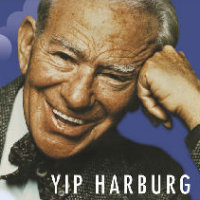 |
Yip Harburg, 1896–1981. American lyricist.
Born Isidore Hochberg, he later took the name Edgar Yipsel Harburg, the "Yipsel" being a nickname for members of the Young Peopl's Socialist League. His left-leaning politics may be seen in songs like "Brother, can you spare a dime?" which he wrote with Jay Gorney, although his most famous work—the song texts for The Wizard of Oz, have no such agenda.
|
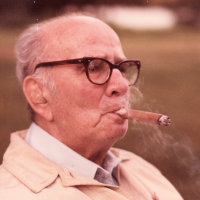 |
Jay Gorney, 1896–1990. Russian-American composer.
Born in Russia (as Abraham Jacob Gornetzsky), Gorney was brought to this country at the age of 10. After an education at the University of Michigan and WW1 service with the US Navy, he began work on Tin Pan Alley, collaborating frequently with Yip Harburg, including on his hit song "Borther, can you spare a dime?"
|
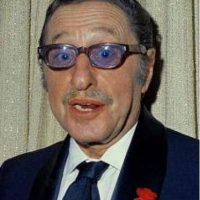 |
Harold Arlen, 1905–86. American composer.
Born in Buffalo (as Hyman Arluck), the son of a cantor, he formed a band as a teenager then moved to New York City to work in vaudeville. In the 1930, he was working mainly with lyricist Ted Koehler, producing standards such as "Let's fall in love" and "Stormy weather." In 1935, however, he signed with MGM and began writing songs for movies, mostly with Yip Harburg, including the iconic score for The Wizard of Oz (1939).
|
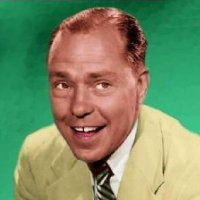 |
Johnny Mercer, 1909–76. American songwriter and singer.
Born in a prosperous family in Savannah, Mercer took an early interest in black music and jazz. He had hoped to become a composer, but found that his greatest talent was as a lyricist. His over 500 songs include "Moon River" in Breakfast at Tiffany's (1961). He also had a parallel career as a singer, and was co-founder of Capitol Records.
|
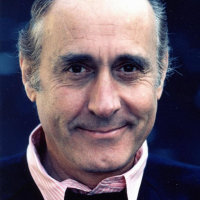 |
Henry Mancini, 1924–94. American composer.
Born in Ohio to Italian immigrant parents, Mancini served in the US Air Force in WW2. There he met Glenn Miller, who later got him a job in Hollywood, thus launching a career as one of the most successful film composers in Hollywood history, winning four Oscars. His hits include the song "Moon River" in Breakfast at Tiffany's (1961) and the theme music to the Pink Panther series.
|
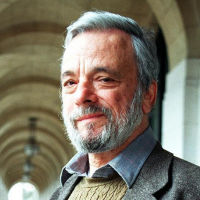 |
Stephen Sondheim, 1930–2021. American composer and lyricist.
A protégé of Oscar Hammerstein's, Sondheim made his Boadway debut in 1957 as lyricist for West Side Story and Gypsy, but he soon began his own string of musicals, writing the music as well as the words, including A Funny Thing Happened on the Way to the Forum (1962), A Little Night Music (1973), and Sweeney Todd (1979). Often dealing with non-traditional subjects, these and others largely redefined the Broadway musical in the later 20th century.
|
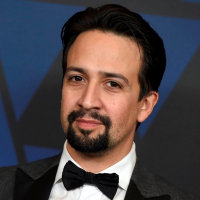 |
Lin-Manuel Miranda, 1980– . American composer.
As the playwright, lyricist, composer, and star performer in his 2015 mega-hit Hamilton, Miranda became an unheard-of quadruple-threat on Broadway. He had shown many of the same talents, however, in his 2005 musical In the Heights, and has since developed his career further into film (both acting and directing).
|
